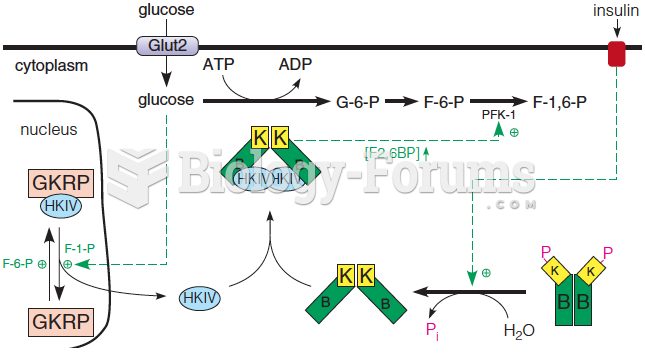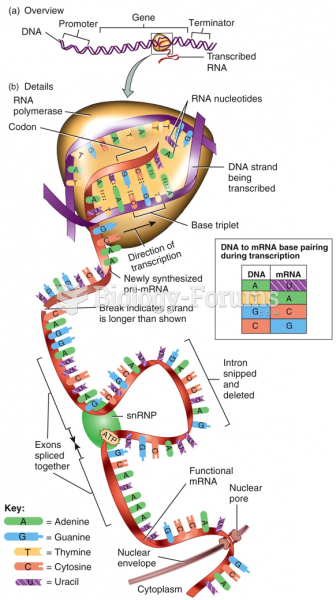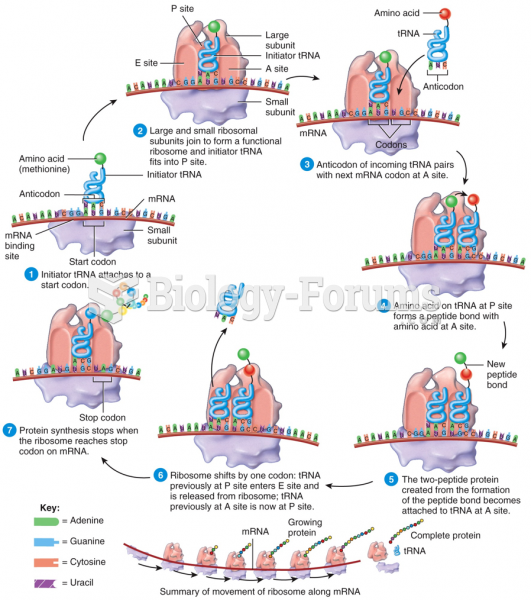|
|
|
Everyone has one nostril that is larger than the other.
The people with the highest levels of LDL are Mexican American males and non-Hispanic black females.
Tobacco depletes the body of vitamins A, C, and E, which can result in any of the following: dry hair, dry skin, dry eyes, poor growth, night blindness, abscesses, insomnia, fatigue, reproductive system problems, sinusitis, pneumonia, frequent respiratory problems, skin disorders, weight loss, rickets, osteomalacia, nervousness, muscle spasms, leg cramps, extremity numbness, bone malformations, decayed teeth, difficulty in walking, irritability, restlessness, profuse sweating, increased uric acid (gout), joint damage, damaged red blood cells, destruction of nerves, infertility, miscarriage, and many types of cancer.
Drying your hands with a paper towel will reduce the bacterial count on your hands by 45–60%.
Increased intake of vitamin D has been shown to reduce fractures up to 25% in older people.







